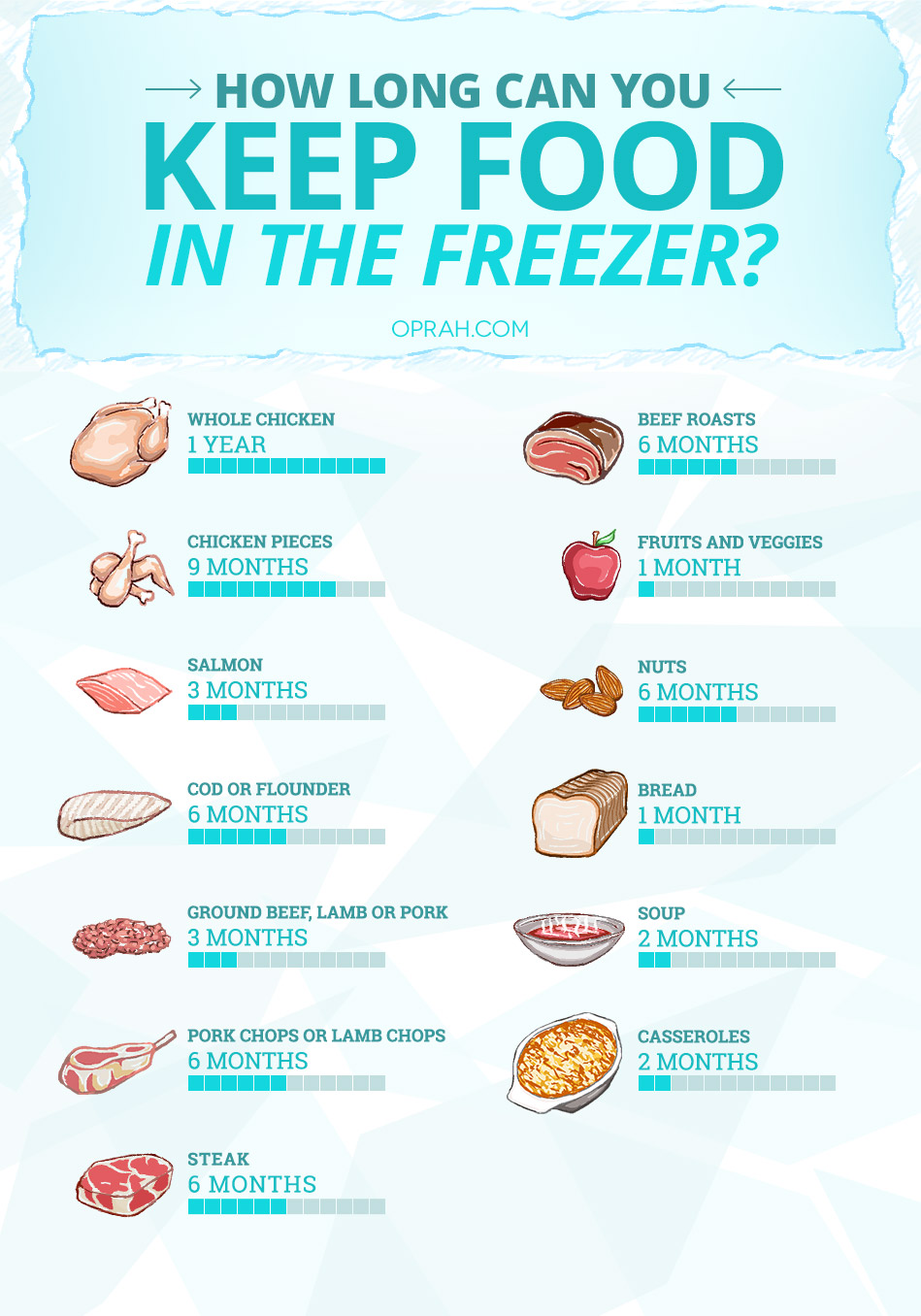How Long Will Food Keep in the Freezer?

Photo: Mackenzie Stroh
Q: How long can I keep frozen food in my freezer?
— Courtney Robin, Stowe, Vermont
A: Keeping food frozen for long periods of time doesn't really pose a safety concern, but it can't stay frozen forever without its taste suffering. For example:
By the way, a food's quality will decline faster if you don't keep your freezer at zero degrees—cold enough to freeze ice cream rock solid. (Speaking of ice cream, it keeps for up to two months.) An appliance thermometer will help you monitor the temperature.
Freezing won't kill bacteria, so use caution when it's time to cook. Thawing foods in the refrigerator is wise because the temperature stays below 40 degrees, the point at which bacterial growth can really take off. Poultry and beef generally require a full day to thaw in the fridge; larger items, such as a frozen turkey, require one day for every five pounds, on average. Mixed dishes containing meat may require slightly less than a day. (Vegetables can usually go directly from freezer to stovetop.) For the best flavor, most foods should be cooked immediately once thawed. Heat leftovers to an internal temperature of 165 degrees to ensure that you kill all bacteria; stews and soups should be brought to a boil. For more information on food storage, check out the Agricultural Extension Service of Texas A&M University's guidelines at uga.edu/nchfp/how/store/texas_storage.pdf.
David L. Katz, MD, is director of the Yale-Griffin Prevention Research Center and president of the nonprofit Turn the Tide Foundation.
— Courtney Robin, Stowe, Vermont
A: Keeping food frozen for long periods of time doesn't really pose a safety concern, but it can't stay frozen forever without its taste suffering. For example:
- A whole chicken is good for up to a year, but pieces—legs, wings, thighs—should be used within six to nine months. For cooked chicken leftovers: four to six months.
- Fatty fish like salmon can be frozen for two to three months, while lean fish like cod or flounder will last up to six. Cooked leftovers: three months.
- Ground meat (beef, lamb, pork) keeps for two or three months; roasts, steaks, and chops can be kept frozen for at least half a year. Leftovers: two to three months.
- Fruits and vegetables can be frozen eight months to a year and still taste fine.
By the way, a food's quality will decline faster if you don't keep your freezer at zero degrees—cold enough to freeze ice cream rock solid. (Speaking of ice cream, it keeps for up to two months.) An appliance thermometer will help you monitor the temperature.
Freezing won't kill bacteria, so use caution when it's time to cook. Thawing foods in the refrigerator is wise because the temperature stays below 40 degrees, the point at which bacterial growth can really take off. Poultry and beef generally require a full day to thaw in the fridge; larger items, such as a frozen turkey, require one day for every five pounds, on average. Mixed dishes containing meat may require slightly less than a day. (Vegetables can usually go directly from freezer to stovetop.) For the best flavor, most foods should be cooked immediately once thawed. Heat leftovers to an internal temperature of 165 degrees to ensure that you kill all bacteria; stews and soups should be brought to a boil. For more information on food storage, check out the Agricultural Extension Service of Texas A&M University's guidelines at uga.edu/nchfp/how/store/texas_storage.pdf.
David L. Katz, MD, is director of the Yale-Griffin Prevention Research Center and president of the nonprofit Turn the Tide Foundation.
As a reminder, always consult your doctor for medical advice and treatment before starting any program.



